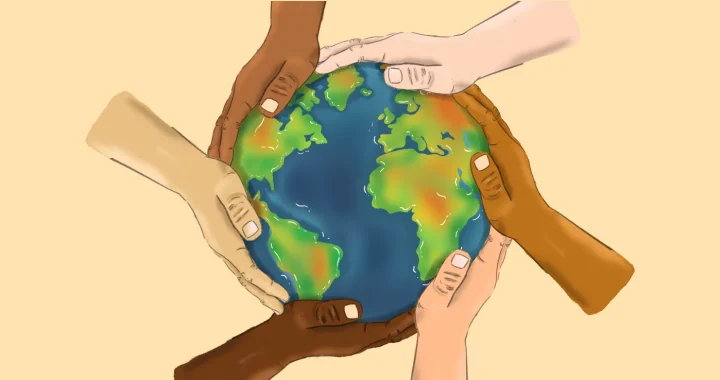How Young People Participate in Driving Sustainable Development Progress

Photo: Sam Mann on Unsplash.
There are approximately 1.2 billion young people in the world. They are an essential foundation of our society, with abundant potential to drive changes for a better future. Unlocking this potential requires recognizing their needs and increasing youth participation in decision-making on things that concern them.
Young People in Development
While there is no universal definition of youth, the United Nations refers to young people as those within the 15 to 24-year age bracket. More than one-third of Sustainable Development Goal targets reference young people with the emphasis on empowerment, participation, and wellbeing. This highlights their central role in the achievement of sustainable development goals.
Despite this, young people continue to face challenges. Youth unemployment persists, with 20.4% of youth not in employment, education, or training (NEET) globally in 2023. Rapid tech development and excessive exposure to the digital world can also potentially derail their cognitive growth and expose them to risks of violence. Poverty, lack of access to health services and quality education, as well as the climate crisis add to the anxiety.
When provided with the knowledge and opportunities they need to thrive, young people can significantly boost sustainable development progress. This means actively involving them as the subject and creator of change, not merely objects without any agency.
Gaps Persist
From conferences to community-based initiatives, youth around the world have been working to advance sustainable development. In Nigeria, among them, young people are stepping up by developing a report evaluating the country’s sustainable development progress.
The Youth Shadow Report, developed by the Network of Youth for Sustainable Initiative (NGYouthSDGs) in partnership with Youth Hub Africa, looks into Nigeria’s 2025 Voluntary National Review (VNR). VNRs contain a country’s experiences in accelerating the implementation of the 2030 Agenda.
Developed based on a nationwide survey and virtual consultations with youth in Nigeria, the report finds gaps between the VNR and youth perceptions on the ground. Despite the word “youth” being mentioned more than 60 times, the VNR often lacks focus on youth-specific issues in critical sectors like health, education, and employment. Additionally, only 22.9% of youth have ever participated in climate action, while 58% feel unsafe or excluded from governance processes.
The report recommends inclusive education and skill programs, youth-led innovation hubs for training and green jobs, community-based climate programs, and legal reforms to secure youth representation in politics and policymaking.
Ensuring Alignment and Participation
Globally, the United Nations has also published the Youth2030 Scorecard for United Nations Country Teams. It is a tool to understand the teams’ performance in priority areas related to youth. Ideally, the scorecard can be used by the UN Country Teams together with young people to ensure meaningful engagement.
Ultimately, involving youth in this effort for a better world means aligning perceptions between written commitment and the needs and implementation on the ground. Believing in their perspectives and eliminating the ‘ageism’ stigma is also essential to make real progress in sustainable development.
Editor: Nazalea Kusuma

Co-create positive impact for people and the planet.
Amidst today’s increasingly complex global challenges, equipping yourself, team, and communities with interdisciplinary and cross-sectoral insights on sustainability-related issues and sustainable development is no longer optional — it is a strategic necessity to stay ahead and stay relevant.

Kresentia Madina
Madina is the Assistant Manager of Stakeholder Engagement at Green Network Asia. She holds a bachelor’s degree in English Studies from Universitas Indonesia. As part of the GNA In-House Team, she supports the organization's multi-stakeholder engagement across international organizations, governments, businesses, civil society, and grassroots communities through digital publications, events, capacity building, and research.


 How Human Behaviour Becomes the Real Engine of Sustainability Action
How Human Behaviour Becomes the Real Engine of Sustainability Action  Germany to Improve Protection Measures for Critical Infrastructures
Germany to Improve Protection Measures for Critical Infrastructures  Data Center Boom: Looking at India and Beyond
Data Center Boom: Looking at India and Beyond  Assessing Indonesia’s Step into Global Carbon Markets
Assessing Indonesia’s Step into Global Carbon Markets  Prioritizing Finance for Nature for Healthy and Resilient Ecosystems
Prioritizing Finance for Nature for Healthy and Resilient Ecosystems  Integrating Indigenous Practices into Australia’s Defense Against Heatwaves
Integrating Indigenous Practices into Australia’s Defense Against Heatwaves